SUMMARY
This is AI generated summarization, which may have errors. For context, always refer to the full article.
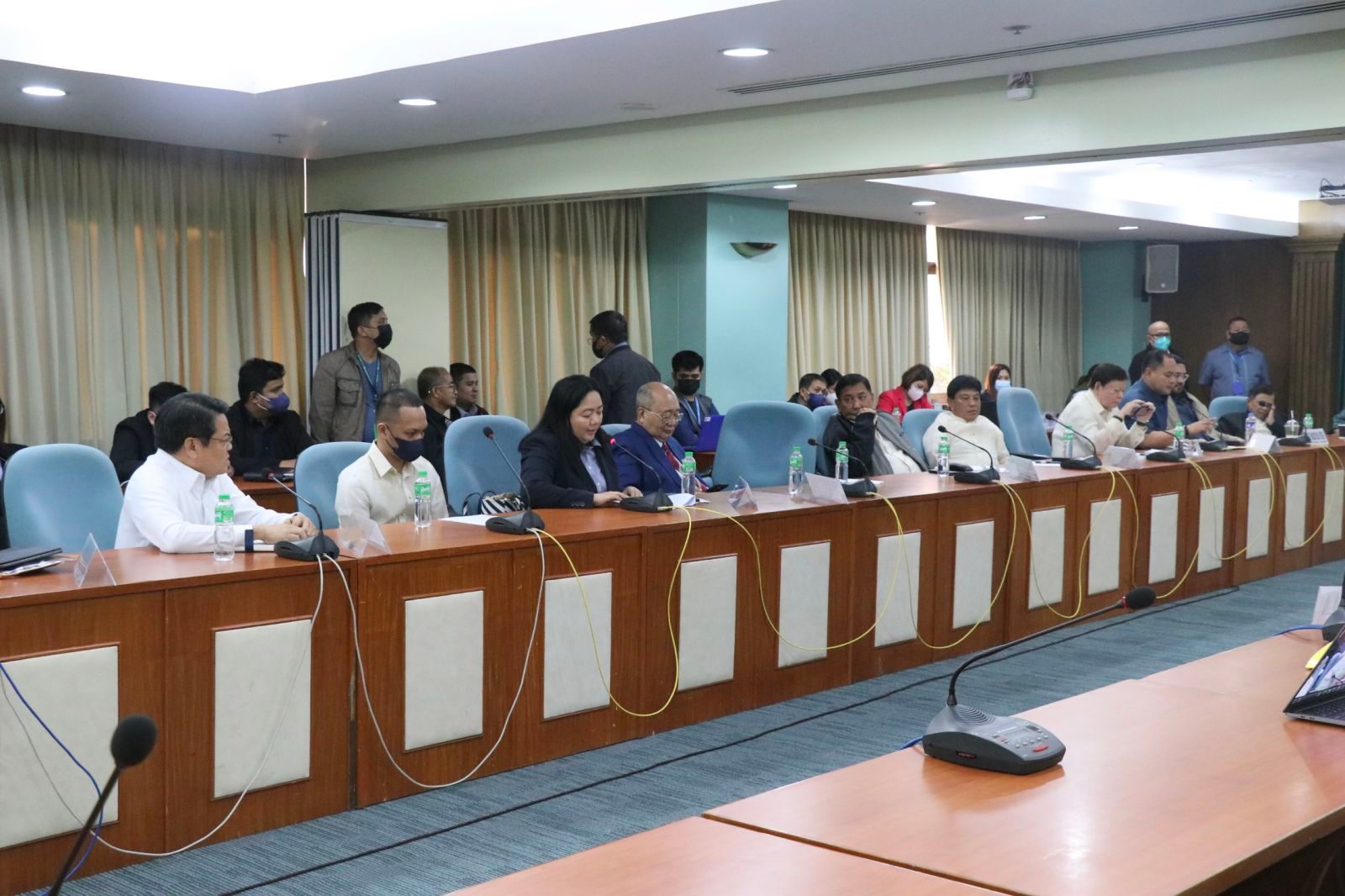
MANILA, Philippines – House lawmakers could not hide their disappointment after a three-hour probe into the possible hoarding of basic commodities – the first motu proprio inquiry initiated by the chamber’s agriculture committee – failed to shed light on why exactly onions have become alarmingly expensive in the Philippines.
The hearing on Wednesday, February 8, was attended by multiple government agencies, but it was the Department of Agriculture’s (DA) Bureau of Plant Industry (BPI) – which monitors agricultural imports – that became the lawmakers’ punching bag after its answers on various issues left congressmen unsatisfied.
Here are questions that remain in the air after Wednesday’s hearing.
Did the DA-BPI submit flawed data?
Data from DA’s BPI submitted to the House showed that in 2022, demand for red onions was 363,937 metric tons, but the supply was only around 338,354 metric tons, indicating a modest shortage in supply.
But House appropriations panel senior vice-chairperson Stella Quimbo was confused why there was a significant spike in onion demand from 2021 to 2022, compared to the years before that beginning 2011.
“Do you have an explanation, because if you do not have an explanation on why there was a 39% increase in demand, you’re just inventing the data and are justifying the rising prices of onions,” Quimbo said.
“The template we have, there is a formula and we don’t change the formula, we just read the data being provided to us by the LGUs [Local Government Units] consolidated by the HVCDP,” said Arnold Timoteo, director of DA’s High Value Crops Development Program (HVCDP).
SAGIP Representative Rodante Marcoleta wondered whether they were being misled by the data, as the supposed onion sufficiency level in 2022 was 120%, according to the Philippine Statistics Authority (PSA).
Timoteo said DA’s data showed a sufficiency level of 210% in the second quarter of 2022, but it went down to 114% in the succeeding quarter, and noted that was when the Philippines suffered a shortage.
“The data you have right now came from PSA. The ones I cited earlier were from LGUs,” he also told Marcoleta. “They have their own methodology, Sir. We are working with PSA to harmonize the data.”
“You’re telling us that come November, the supply went missing? The data is flawed if that’s the case,” Marcoleta replied.

Can the DA-BPI fulfill its mandate?
The House agriculture panel adopted a motion to conduct an oversight assessment of DA-BPI’s functions, after Deputy Majority Leader Jay-jay Suarez insisted there are “loopholes” in its job.
“Maybe we can check the performance of BPI as an agency, whether they are fit to do what they are mandated to do because it seems they have been giving us a false representation of reality,” said Suarez. “Why do we need to provide funds to an agency we cannot even count on?”
The DA-BPI said its job includes giving permits to warehouses and cold storage facilities, and monitoring licensed importers and production houses where onions are planted, but added it has no data on traders.
“Based on what we saw, onions have been released from warehouses. We are also confused why the prices of onions are surging,” said Sheree Samala, DA-BPI chief.
“In my mind, how can that even be right?” Quimbo asked later in the hearing. “Let me express utter disappointment that the BPI doesn’t even know this. It’s unacceptable they do not know who the traders are.”
The DA-BPI also confirmed they are monitoring non-accredited cold storage facilities, but lawmakers are confused why they are not shut down if they do not have licenses.
“What if the cold storage facility is not cold or clean enough, yet they are monitoring them? How sure are we that the onions being supplied to Filipinos are clean and safe for consumption?” Suarez also asked.
“One division is now requiring the mandatory accreditation. We are in coordination with the Department of the Interior and Local Government,” Samala said.
Why does the ‘onion queen’ have fuzzy memory?

Agricultural entrepreneur Lilia Cruz faced the panel on Wednesday and asserted her innocence after her name was implicated in the onion shortage crisis.
Cavite 4th District Representative Elpidio Barzaga pointed out that a resolution he filed in 2013 had named Cruz as the sole importer of onion and garlic in the country.
“I have been implicated in the smuggling of onions and garlic, yet time after time, my faceless accusers have yet to prove their accusations,” Cruz said. “Unless they take this challenge, all these claims should be taken with a grain of salt.”
But when quizzed by Quimbo, Cruz appeared reluctant to answer basic questions on her company’s involvement in the trading of vegetables.
“How can you forget how you made money? That’s something you will not forget,” Quimbo said.
‘Disappointed’
After the hearing, Quimbo said this was just the start of a series of hearings, as the first day of inquiry failed to trace the roots of the onion crisis.
“What is clear is there is hoarding. We just don’t know who’s behind it or where the onions are, how it is done, what the magnitude is. But it’s clear, because there is supply, yet prices are high. So, where is the supply? It’s hidden somewhere,” she told Rappler.

Agriculture panel chairperson Mark Enverga also expressed disappointment over the data gaps.
“I also believe the price should not have been that high. There is a big possibility there is price manipulation,” Enverga also told Rappler after the hearing.
The committee will resume its inquiry on Tuesday, February 14. – Rappler.com
* All quotes in Filipino were translated into English, and some were shortened for brevity.
Add a comment
How does this make you feel?
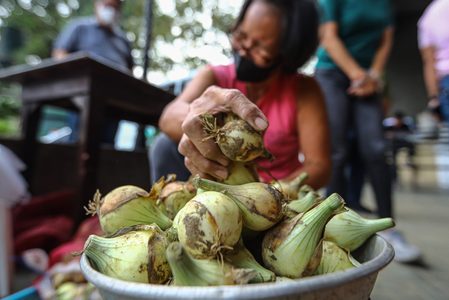

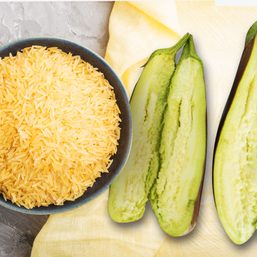

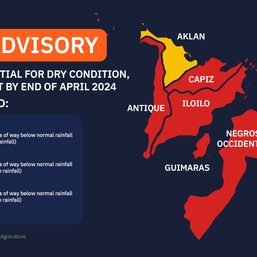
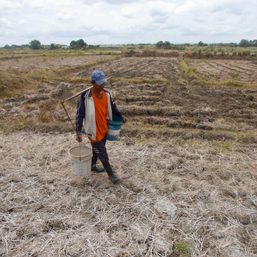

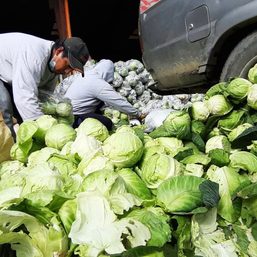
![[ANALYSIS] Investigating government’s engagement with the private sector in infrastructure](https://www.rappler.com/tachyon/2024/04/tl-gov-private-sectors-infra-04112024-1.jpg?resize=257%2C257&crop=435px%2C0px%2C1080px%2C1080px)
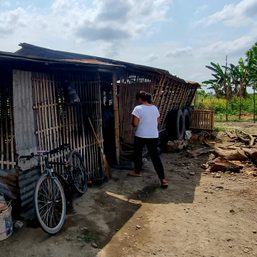
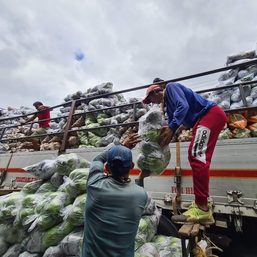
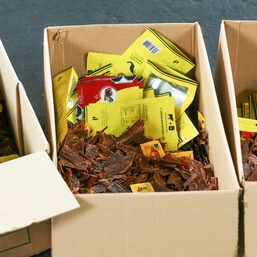
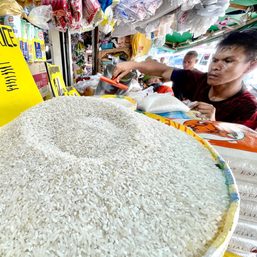
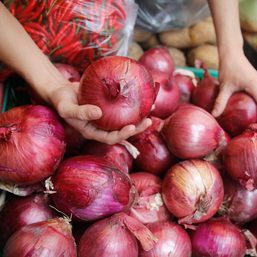

There are no comments yet. Add your comment to start the conversation.